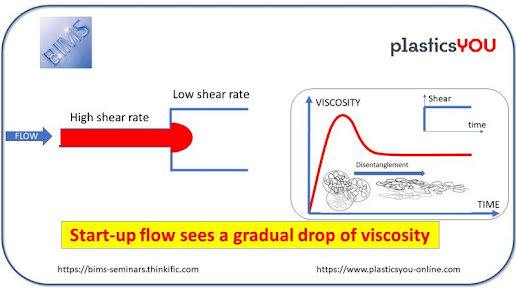ROBIN Radar Selects DSM’s Dyneema® Crystal Technology for Elvira® Radome
THE NETHERLANDS -- DSM Dyneema, the manufacturer of ultra-high molecular weight polyethylene (UHMWPE) fiber, branded as Dyneema®, announced that ROBIN Radar Systems has selected industry-leading Dyneema® Crystal Technology for the radome of its new Elvira® drone detection system.
Elvira® radomes are produced by DSM Dyneema’s partner Airbrone. The two companies collectively manufacture next-generation radomes made with Dyneema® Crystal Technology for customers worldwide.
Gerben Pakkert, head of R&D at ROBIN Radar Systems: Dyneema® Crystal Technology fulfills the most desired requirements of Elvira® which is looking for small targets and distinguishing fine details to prevent false positives. It provides high transparency to minimize signal loss, therefore rules out existing alternatives. Dyneema® Crystal Technology delivers lower signal loss than any other radome material available today, allowing to realize the full potential of advanced radar system.
Elvira® was specifically designed for drone detection. After winning a tender from the Dutch Ministry of Justice, ROBIN Radar applied its expertise in tracking small targets to design the new system, which launched in April 2016. Elvira® provides military-grade radar capabilities, including advanced Doppler processing that enables it to track even the most agile drones. The system is offered at a competitive price that supports broad usage in professional security scenarios, such as protecting high-profile events, airports, harbors, prisons and other critical infrastructures against drones. By combining detection and classification in just one sensor, the technology saves precious time in the decision process.
Danielle Petra, new business development manager at DSM Dyneema: The most important requirement of drone detection it to accurately detecting and classifying them. Elvira® is an excellent example of how Dyneema® Crystal Technology is helping customers create radically new detection technologies and underscores DSM Dyneema’s commitment to supporting its customers with the most advanced security materials on the market today.
Dyneema® Crystal Technology is inherently hydrophobic without the need for time-consuming and demanding secondary resin application, a property that virtually eliminates the need for regular maintenance.
Source: DSM
Protection Benefits of Dyneema® Crystal Technology for Elvira® drone detection system
- With near-zero signal loss it helps Elvira® detect drones and classify them
- It distinguishes drone detection system from birds or other flying objects
- It differentiates drone systems from traditional radar systems even at longer distances
- It helps in detecting larger fixed-wing drones at a range of nine kilometers and smaller multi-rotor drones at up to three kilometers
- Offers electromagnetic transparency
- Provides superior protection to sensitive equipment in harsh outdoor environments
- Results in extreme weight reduction which aids easy transport
Elvira® radomes are produced by DSM Dyneema’s partner Airbrone. The two companies collectively manufacture next-generation radomes made with Dyneema® Crystal Technology for customers worldwide.
Gerben Pakkert, head of R&D at ROBIN Radar Systems: Dyneema® Crystal Technology fulfills the most desired requirements of Elvira® which is looking for small targets and distinguishing fine details to prevent false positives. It provides high transparency to minimize signal loss, therefore rules out existing alternatives. Dyneema® Crystal Technology delivers lower signal loss than any other radome material available today, allowing to realize the full potential of advanced radar system.
Elvira® was specifically designed for drone detection. After winning a tender from the Dutch Ministry of Justice, ROBIN Radar applied its expertise in tracking small targets to design the new system, which launched in April 2016. Elvira® provides military-grade radar capabilities, including advanced Doppler processing that enables it to track even the most agile drones. The system is offered at a competitive price that supports broad usage in professional security scenarios, such as protecting high-profile events, airports, harbors, prisons and other critical infrastructures against drones. By combining detection and classification in just one sensor, the technology saves precious time in the decision process.
Danielle Petra, new business development manager at DSM Dyneema: The most important requirement of drone detection it to accurately detecting and classifying them. Elvira® is an excellent example of how Dyneema® Crystal Technology is helping customers create radically new detection technologies and underscores DSM Dyneema’s commitment to supporting its customers with the most advanced security materials on the market today.
Properties of Dyneema® Crystal Technology
- provides an extremely low loss tangent
- offers approximately half the dielectric constant compared to aramid, e-glass and quartz
- electrical properties maintain superior performance even at higher frequencies from X band to millimeter band
- electrical properties allow military, civil and telecommunications organizations to realize the full potential of their advanced antenna, radar, radio astronomy or communications systems
- offers an exceptional strength-to-weight ratio and high impact resistance
- can be used in thinner gauges that enhance transmission quality even more
- Its weight-reduction property makes radomes more energy-efficient to ship and easier to maneuver and install
Dyneema® Crystal Technology is inherently hydrophobic without the need for time-consuming and demanding secondary resin application, a property that virtually eliminates the need for regular maintenance.
Source: DSM



Comments
Post a Comment